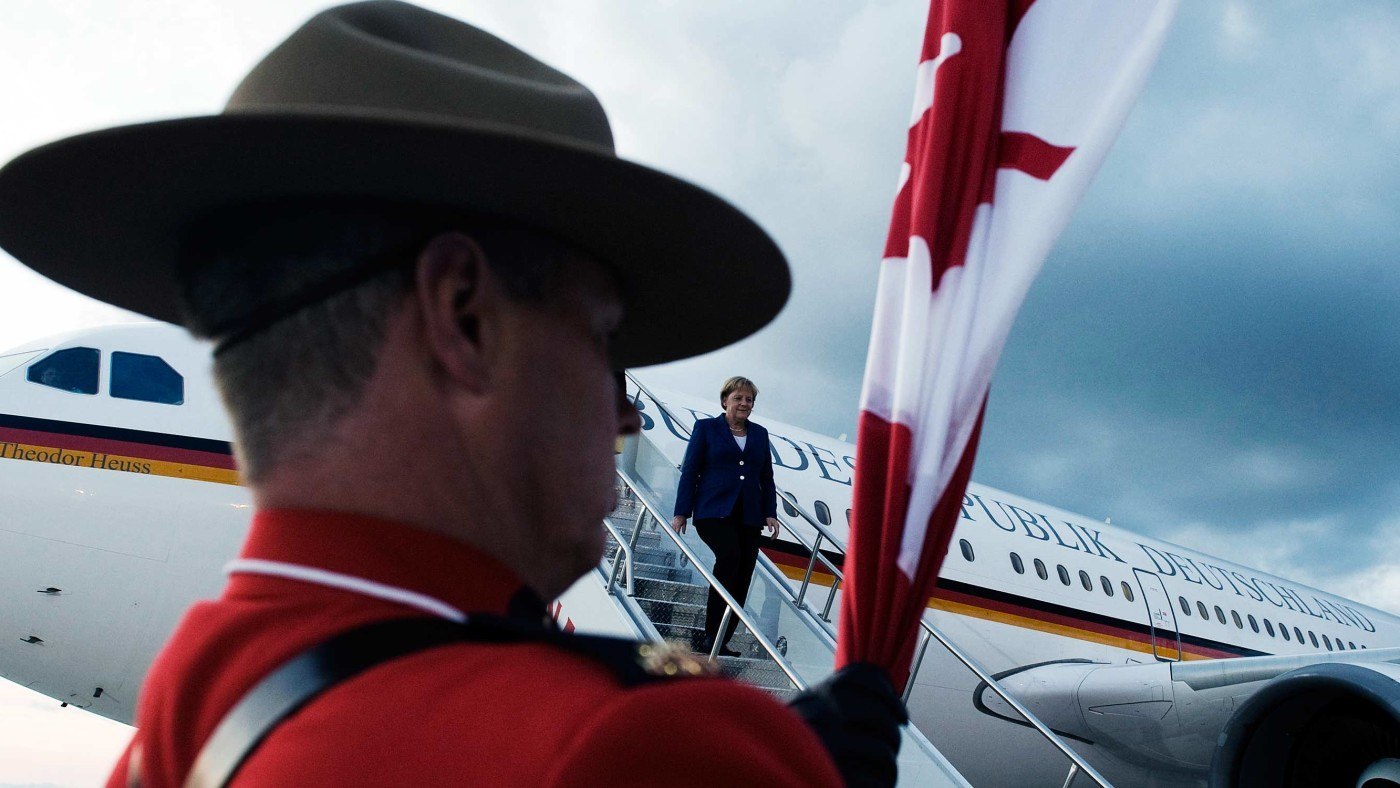As far as I can tell, I was the first person to raise publicly the new Canada-EU Comprehensive Economic and Trade Agreement, or CETA, as a potential template for Brexit, in an article in The Times on January 26th. I have Canadian relatives and lived there for a while, so I keep a fond eye on Canada. I challenged both the Remain and Leave campaigns to look at the deal and explain whether or not it was a useful template for a deal between Britain and the EU if we voted to leave.
Boris Johnson has now taken up the cause and over the weekend specifically cited the Canada-EU deal as a model.
The full agreement and summary is available online and it runs to 1,600 pages. Like the correspondence of Phillip II of Spain, one suspects no single person has read all of it. The main points are pretty clear, but I have to confess that I am not an expert on the all the complexities.
Here are 10 things you need to know:
1. Tariffs
The agreement summary says: “Overall, the tariffs for 98.6% of all Canadian tariff lines and 98.7% of all EU tariff lines will ultimately be fully eliminated. This will happen at entry for 98.2% of the Canadian tariff lines and for 97.7% of the EU tariff lines. All other products identified for liberalisation will have their tariffs brought to zero within 3, 5 or 7 years.”
2. Financial Services
Contrary to the spin from the Remainers, financial services are specifically addressed in Chapter 13 of the agreement. It says that “each Party shall permit a crossborder financial service supplier of the other Party, on request or notification to the relevant regulator, where required, to supply a financial service”. This is a step short of the current “passport regime” under the single market which means an approval by regulators in London is valid across the EU.
A bigger issue is that the EU, led by financial markets commissioner Lord Hill, is about to introduce a Capital Markets Union. This means there will be a single rule book for raising capital across the EU. From the City’s perspective, being left out of this would indeed be disappointing and there is no mention of it in CETA. Except, of course, the bulk of the EU’s capital markets are effectively run from London, so they would be mad to shut us out.
3. Other services
Certain key services, such as telecommunications, postal and maritime services are effectively opened in full, others are subject to a “negative listing” process. If they are on the list they are excluded.
4. Agricultural products
These will be almost entirely removed. Duties on between more than 90% will go immediately, with the rest removed progressively over seven years. Special rules will apply to certain sensitive products, such as chickens, on bio-security grounds. An geographically based product names, such as Champagne, will be protected.
5. Professional qualifications
The agreement creates a process for mutual recognition so, for instance, doctors and architects can practice in each others’ countries.
6. It should come into force this year
The Remain crowd like to say that the Treaty is “still not ratified”, but they fail to mention that once it is approved by the European Parliament, expected this year, a provisional mechanism will bring most of its clauses into force immediately. Ratification by the 28 member states of the EU can then progress at a sedate pace. This provisional mechanism is specifically mentioned in an interview by the Canadian negotiator, Steve Verheul, with a website called i-politics last week.
7. CETA has attractive advocates
One reason CETA is worth looking at closely is that Canada is a Parliamentary democracy, modelled on Westminster. The Canadian Parliament in Ottawa has a Speaker, with red coated, bearskin wearing guardsmen on duty outside. There is a prominent, English-hating minority in one area of the country. Justin Trudeau, the floppy-haired new Prime Minister, gave a beautiful tribute to the Queen at the recent Commonwealth Heads of Government Conference. The trade minister, Chrystia Freeland, is a former Financial Times journalist who wrote a best-selling book on Russia called Sale of the Century. To her credit, she has been banned by President Putin.
8. Negotiations could be emotional
During the Brexit Wargame staged by Open Europe (I am on the advisory board) earlier this year, there was some very raw emotion from the EU side when Canada was raised by Lord Lamont. So some patient diplomatic work would be required to get an agreement. John Bruton, former Taoseach of Ireland, called it “an unfriendly act”.
9. The EU loves the deal
The EU trade commissioner, Cecilia Malmstrom, has described Canada as “an essential ally” and says the deal is “highly ambitious” and “the most significant new free trade agreement on the block for many years”. According to UK the Government, CETA will benefit the UK economy by £1.3bn a year and the European Commission says it will remove €470m of tariffs paid by European businesses and lead to an increase in EU GDP of €12bn.
10. There is no void
CETA could form a good first draft of a deal between the UK and the EU, reducing significantly the time required to negotiate a British deal. If so, then voting leave would not be “jumping into a void” as some have falsely claimed. Its imperfections in relation to the City could presumably be ironed out in time.
So I repeat the question. What is not to like? It really won’t do for the Remain crowd to dismiss the Canada-EU deal without proper thought or consideration.


